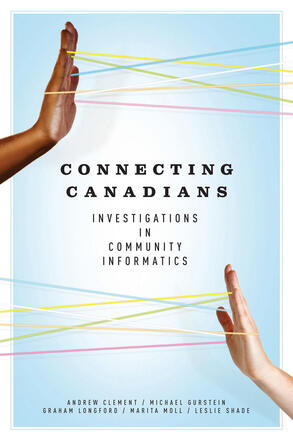
Connecting Canadians
Investigations in Community Informatics
La description
Connecting Canadians examines the role of community informatics, or community-based ICT initiatives, in this process of transition. The Community Research Alliance for Community Innovation and Networking (CRACIN) set out to study how civil society groups—in locations ranging from Vancouver to Labrador and from remote Northern communities to Toronto and Montréal—sought to enable local communities to develop on their own terms within the broader context of federal and provincial policies and programs. Drawing on diverse theoretical perspectives, from sociology to library and information sciences to women’s studies, the essays not only document specific local initiatives but analyze the overall trajectory of the government’s vision of a digitally inclusive Canada.